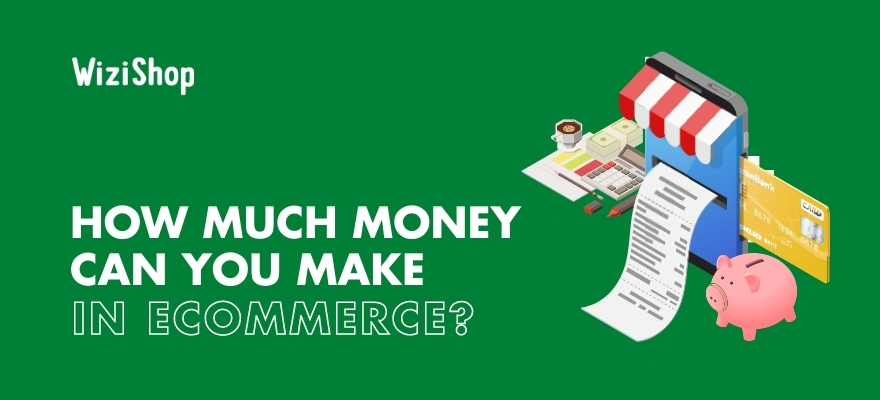Regardless of how amazing your products are, you’re likely to find that your online store isn’t selling if you aren’t getting visitors to your website. There are thankfully many effective strategies available, though, for ecommerce businesses to utilize for this purpose.
The overall cost combined with the effectiveness of each marketing strategy will vary based on a number of components that are specific to your business. It’s therefore up to you to start to create and refine an exceptional digital marketing campaign.
Using marketing strategies to generate traffic
The marketing strategies that you choose to use to promote your ecommerce business may be dependent on several aspects. For example, your marketing budget establishes firm limits to the reaches of your campaigns.
Your preferred strategies may also be tied to your target audience and how easily you can reach those individuals through different strategies or platforms.
For many ecommerce businesses, a comprehensive marketing plan that takes advantage of several strategies will yield excellent results.
Here are several common strategies that ecommerce businesses use to get more visitors to their pages so that they may hopefully start to sell more products!
1. Search engine marketing
This type of marketing should be the cornerstone of most online campaigns for ecommerce businesses. This is because many online shoppers begin to look for a specific product by using Google or another search engine.
Your website must be easy for those shoppers to locate when they conduct relevant searches. While you can pay for a top placement on search engine results pages, organic traffic from search engine optimization (SEO) should be a top priority.
Organic website traffic is preferred because it’s free, and it may be more sustainable than paying for more site visitors. The downside to SEO, however, is that it takes time for search engines to find an optimized website.
Additional time may be needed for a website to receive better placement for targeted keyword searches.
Patience and a thoughtful strategy are essential for success with SEO and marketing. Efforts should include careful research for long-tail keywords and the incorporation of your selected phrases into static website text, blog posts, and product descriptions.
Page elements should also be optimized with keywords. These components include meta descriptions, page titles, alt text for images, and others. Each page should be optimized uniquely so that your pages do not compete against each other for a top ranking.
2. Email marketing
Emailing your customers periodically with newsletters, promotion announcements, and links to blog posts is a cost-effective strategy that’s direct and easy to do. This type of campaign generally develops slowly over time as you collect email addresses from various opt-in methods.
For example, your customers may sign up to receive promotional information from you when they make a purchase. They may alternatively sign up via a popup screen when they land on your home page.
As the size of your email distribution list grows, the reach of these campaigns will expand dramatically. Your emails will be immediately placed in your customers’ inboxes so that they can act on limited-time offers, read blog posts, and take other desired actions.
The return on investment for this type of marketing is often substantially higher than many types of paid marketing efforts. However, you’ll need to have a sizable email list before your ecommerce site will see a major bump in traffic from this solution.
Note that when you create your online store with WiziShop, your email marketing efforts will be made a lot easier with the assistance of our handy Auto-Mail Booster feature!
You’ll be able to send newsletters, personalize the content of your emails, and even program automatic follow-up emails, such as for abandoned-card scenarios.
3. Social media marketing
This kind of marketing can be both paid and free. For instance, once you establish a business profile for your ecommerce site, your posts can directly reach your followers. Tweets, Facebook posts, and other forms of social media marketing are great ways to stay in touch with your audience.
At the same time, they can drive traffic to your blog or product pages. In addition, they can easily be shared by your followers to expand the reach of these campaigns.
The leading social media platforms also have paid marketing solutions. For example, you can create a promotion for a Facebook post.
Through promotions on Facebook and other platforms, you can establish a firm budget and set dates for a campaign to run. You can even specify demographics for your target audience so that your funds are spent in a truly cost-effective way.
As is the case with email marketing, your reach with free social media marketing will increase as your number of followers grows. However, paid marketing on social media platforms is largely limited by your budget for each campaign.
4. Pay-per-click marketing
Pay-per-click (PPC) marketing is another effective way to encourage visitors to your ecommerce store’s website. Two of the most popular platforms for a PPC campaign are Facebook and Google.
If you pay for ad space on Facebook, the ad usually will run in the sidebar next to the primary feed. Google ads often take the top few spots on search results pages.
There’s a notable difference between these PPC outlets.
Facebook enables you to set parameters for the demographics of those who view your ad. With Google, you can review demographics data on those who saw the ad after the fact.
Nevertheless, no matter which platform you opt for, you can make adjustments to your PPC efforts over time so that your reach with each campaign is more refined.
5. Content marketing
Perhaps you have a small budget for online marketing for your startup. Or maybe you prefer to take a more modest approach to conserve resources for your established ecommerce store. Either way, content marketing should be included in your plan.
One of the more common types of this form of marketing used by ecommerce stores is blogging. Through blogging, you create valuable content for your customers to enjoy. This could include posts with seasonal fashion tips, how-to articles on using specific product features, money-saving promotions, and more.
Some people hire writers to prepare blog posts, but you can eliminate this cost by creating the posts yourself. Blog promotion can be paid or free, such as by creating a post on your Facebook page to share your latest article.
You can also prepare your own content for Reddit, Quora, and other similar platforms at no cost.
Content marketing may produce modest results initially, but its true value is found over a longer period of time. This is because it plays an important role in SEO.
As you regularly prepare content, your pages may receive a better placement on search engine results pages. Keep in mind that some of your content may continue to be relevant for several months or even years, so it can continue driving traffic to your website as well.
6. Affiliate marketing
Affiliation can also be a cost-effective marketing method when you establish competitive terms. Affiliate marketers are paid to promote an online store’s products.
While some affiliates run ads on their own blog and social media platforms, others specifically create detailed and sales-oriented content.
For example, an affiliate marketer could write a blog post about how amazing a specific product is. This type of content promoting products may alternatively be covered in a paragraph or two in a larger post.
Affiliates may be paid for each click they generate to your website. They could also be paid a percentage of each sale that they are responsible for generating.
In many cases, visitors may be tracked via cookies for a specific period of time. If those visitors return to the website within a predetermined period, affiliate marketers may still receive a commission for their efforts.
Calculating the profits for your ecommerce business
Your ecommerce business’s profit is calculated by subtracting all related expenses from the store’s gross revenue. These expenses include marketing costs, administration expenses, the cost of goods sold, and others.
In many cases, increasing your marketing budget can help drive profits. However, it makes sense to scale up on your marketing campaigns gradually. By doing so, you can better manage your profit margin and refine your campaigns to improve your return on investment.
Ecommerce stores can have a global reach, and the cost of reaching those individuals is affected by the marketing strategies that you use. After you determine and establish a marketing budget, take the next important step of researching your target audience and keywords to target.
These initial steps will get your marketing campaign started on solid footing. As sales of your business’s products grow and your marketing budget expands, you’ll be able to comfortably expand your marketing efforts to bolster profits further!










